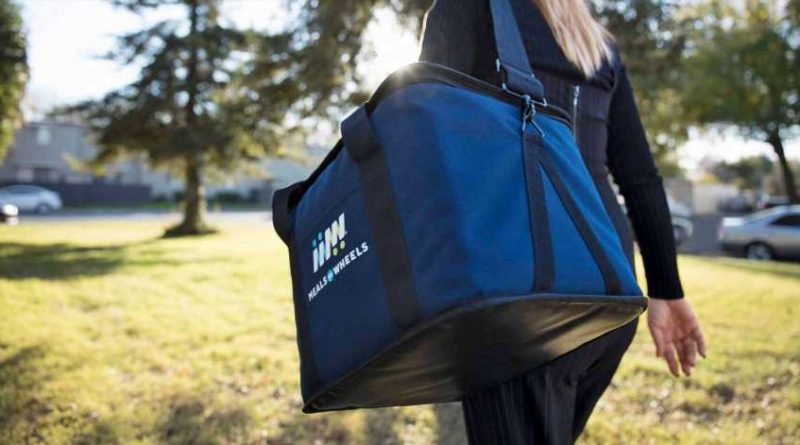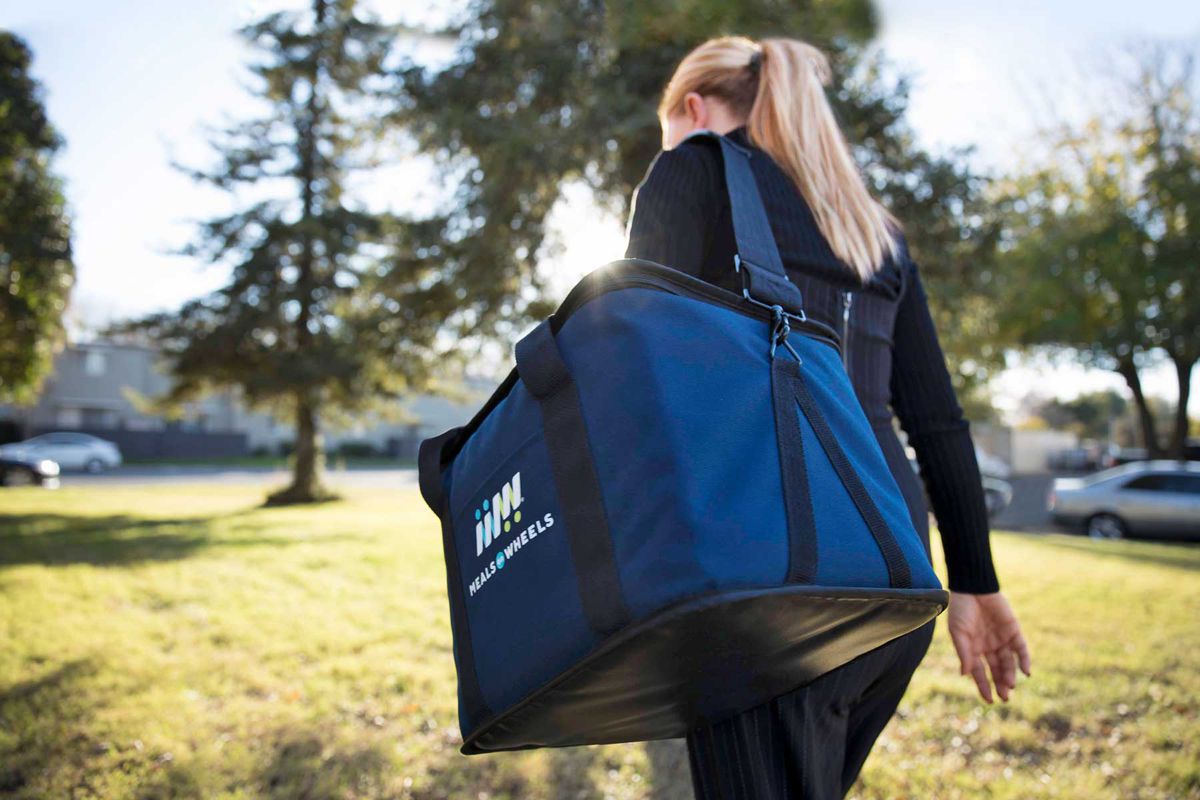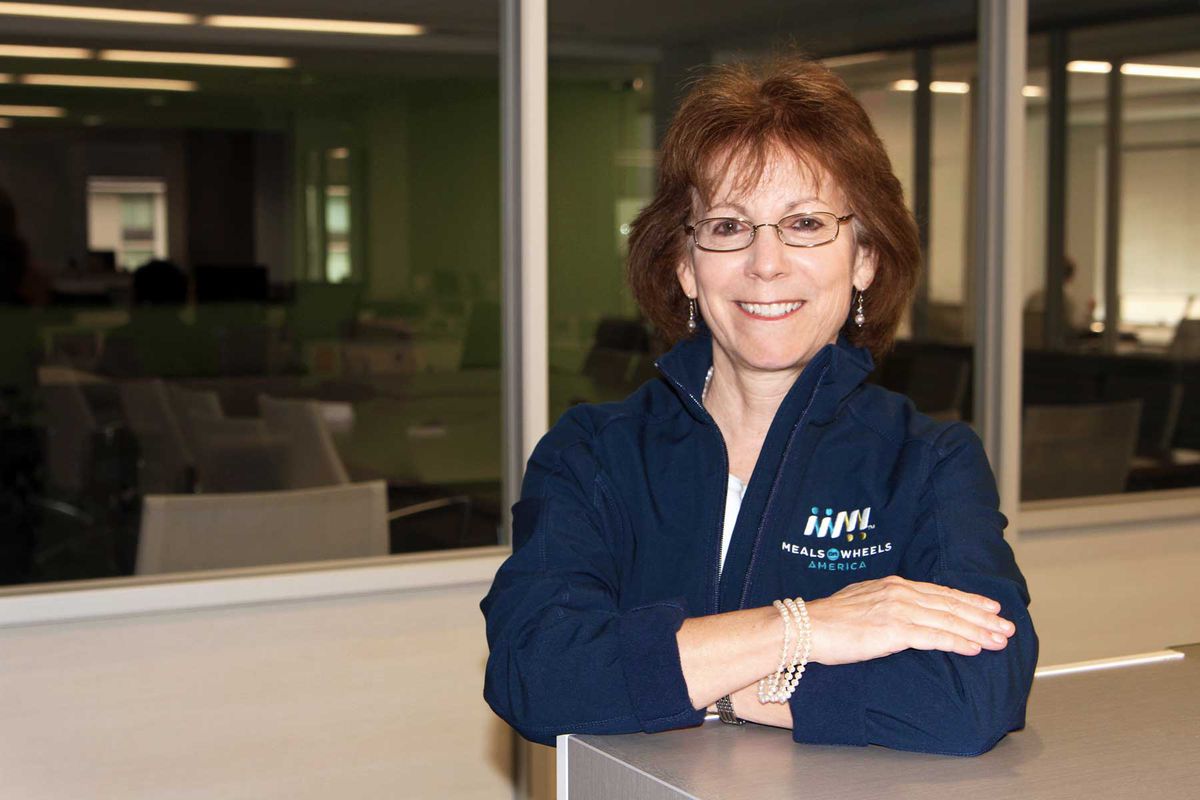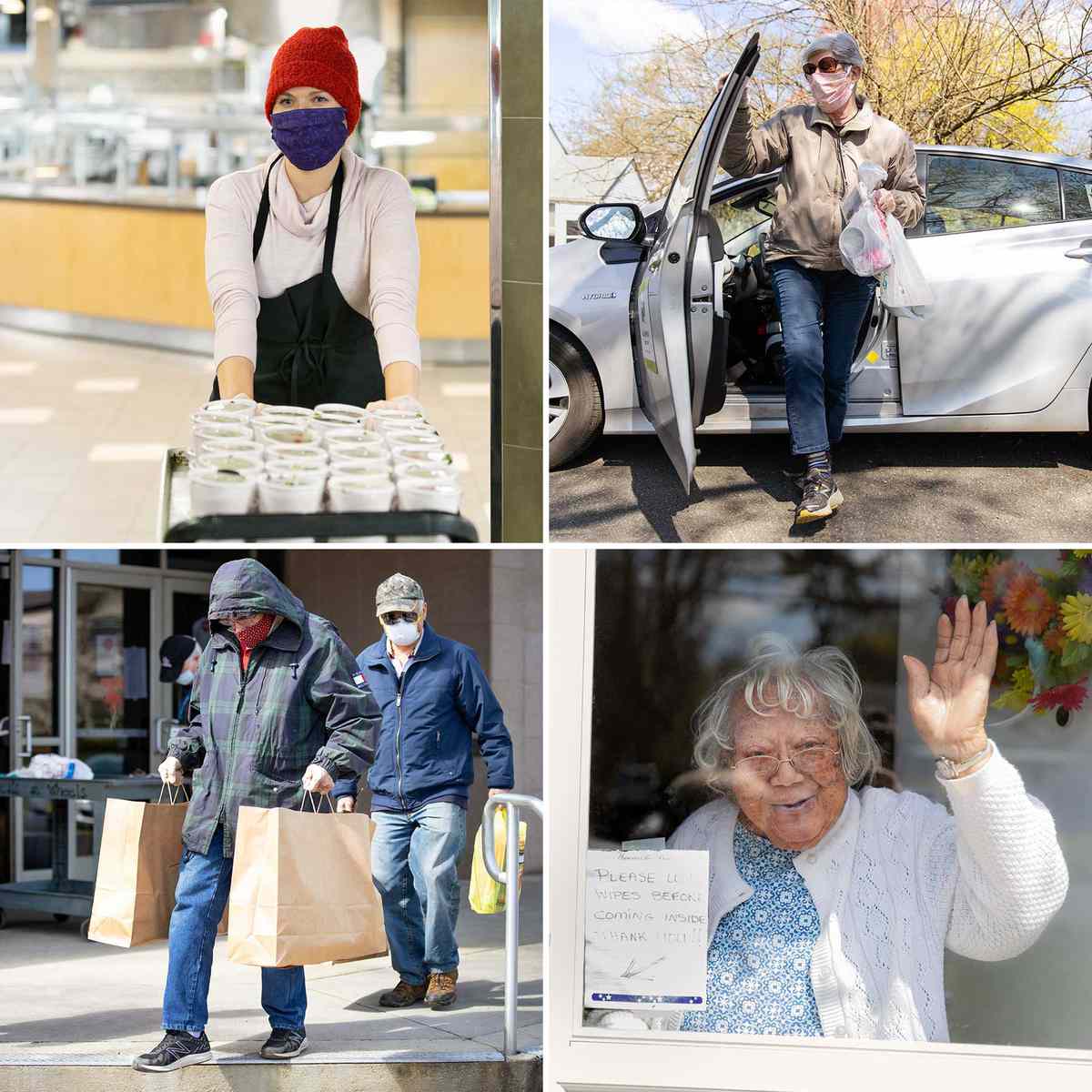With Food Insecurity on the Rise, the President of Meals on Wheels America Shares How You Can Help
Ellie Hollander has seen Meals on Wheels America through crises before. She joined in 2013, when the federal budget sequestration forced cuts to the organization. But the nonprofit — whose 100,000 staff members and 2 million volunteers feed vulnerable seniors and those with limited mobility — has never been faced with a challenge quite like this one.
The COVID-19 pandemic created a perfect storm. Food insecurity spiked across the country. Making deliveries became a challenge due to social distancing requirements. Meals could no longer be sent to senior-care centers or served in group settings. Groceries and personal protective equipment became more expensive — and sometimes harder to find — as different parts of the country struggled with supply issues. "The senior population in the U.S. was already growing exponentially," Hollander explained when we spoke over the phone this fall. "Now one in six seniors worries about where their next meal is coming from."
Another key issue: loneliness, which Meals on Wheels personnel would typically help alleviate with face-to-face interaction during drop-offs. "Isolation is as detrimental to one's health as poor nutrition, and that issue was growing, even pre-pandemic," Hollander told me. "One in four seniors lives alone. Our meal recipients trust us, and welcome us into their homes. A year of these appointments — feeding people, providing social time — costs the same as them being in a hospital for one day." Despite that, rising prices for food and transportation mean that Meals on Wheels now serves 20 million fewer meals annually than it did 15 years ago. Federal funding makes up more than a third of the program's budget, and it has never kept pace with need.
Like many individuals, businesses, and organizations across the country, Meals on Wheels has pivoted to meet the unique challenges of the ongoing pandemic. Masked, in-person drop-offs are augmented with telephone check-ins or face-to-face video calls. Volunteers are also organizing letter-writing initiatives. "We started a COVID-19 response fund and a campaign called Don't Stop Now," Hollander said. "Don't stop caring, don't stop calling, don't stop giving."
The number of seniors receiving Meals on Wheels deliveries has grown by 47 percent since March, and Hollander acknowledges that "there's no panacea." Still, she remains hopeful — and wants people to know how they can help: "If you're worried about someone getting nutrition, you should contact your local Meals on Wheels affiliate."
There is, however, one small silver lining to the pandemic, as Hollander sees it. "Quarantine helps people understand what seniors are going through every day," she said. "We have to build an ongoing pipeline of support.
An Update from New York City
Back in June, as my hometown began to emerge from lockdown, I was able to meet with chef Daniel Boulud, who is board co-president of CityMeals: a local affiliate of Meals on Wheels America. Though still reeling from shuttering his restaurants, he had quickly mobilized his operations to help feed vulnerable New Yorkers.
Five months later, I checked in with CityMeals again — this time at the Stanley M. Isaacs Neighborhood Center, a low-slung brick building on 93rd Street, off First Avenue. In the past, seniors would drop in to eat and socialize. Those group gatherings had been paused, but there was still plenty of activity, with masked and gloved volunteers packing up helpings of barbecued chicken, potatoes, and kale. Between 600 and 700 meals go out each day.
I paired up with Diana Imhof, who started volunteering at the center in April, to help with her deliveries — which take about an hour, four days a week. "I never had the grandparent experience, so this gives me a little bit of that," explained the lifelong Manhattanite.
Together, we made the rounds, lingering for socially distanced chats when someone needed companionship. Imhof now knows the 14 people on her route as if they were family. A few recipients are hard of hearing, so Imhof knocks extra loud. One woman told us she had been living in the same building since the 1970s — another challenging time in New York City history.
More volunteers are coming to CityMeals these days, Imhof noted, especially parents with kids. "It absolutely makes you feel like there are still people who care."
T+L Global Good is a social-impact initiative in which our brand partners with organizations that are driving change and taking steps toward a more just world. For information on how to support Meals on Wheels America, head to mealsonwheelsamerica.org.
Source: Read Full Article






